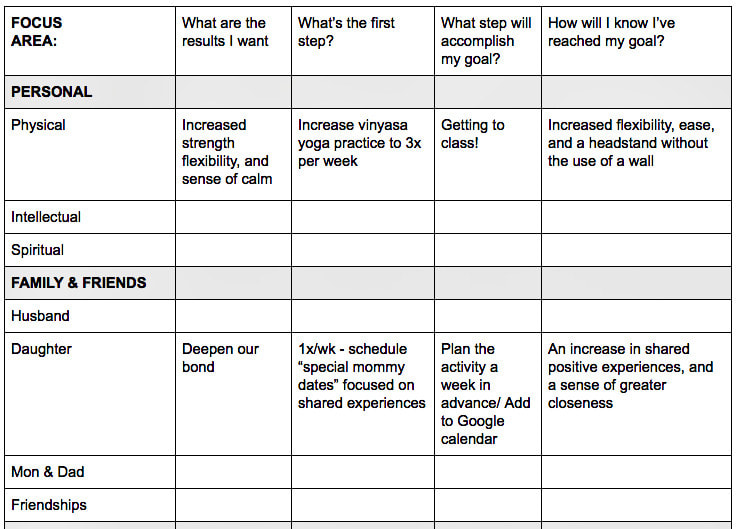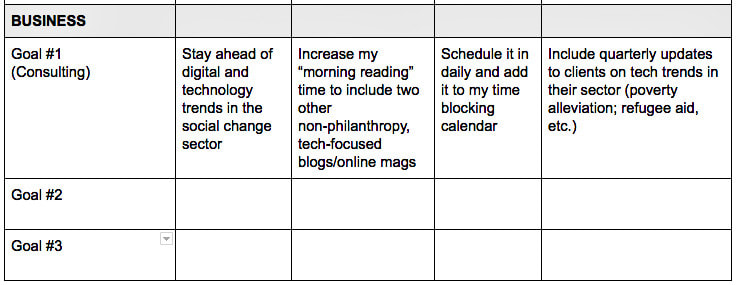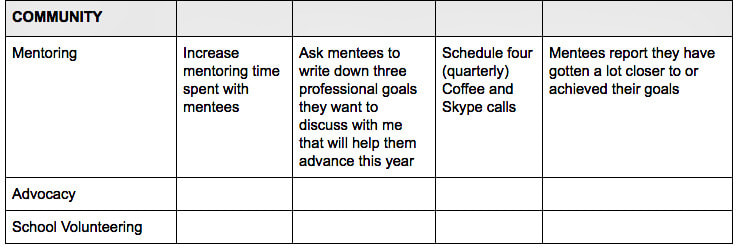|
I’m in the midst of a hire, and I was thinking back today on what aspects of leadership have served others and myself the best to grow and flourish in their roles. Some back-of-the-envelope notes I made for myself:
Leadership is learning . Let's keep learning and leading together. C. I've been reading a lot about (and definitely experienced) this very "now" phenomenon of zoom fatigue. Most of our work meetings are now held over Zoom which means our connections are being filtered through a screen versus in-person. This means we're likely expending a ton of extra energy deciphering the emotional and physical signals of our colleagues, as we also process conversations, problem-solve, and do all the things that meetings are meant to do. And how absolutely exhausting it is to also have to stare at your facial reactions, whether you look engaged enough, and even if your hair looks funny at any given moment. All things we are far less aware of it we didn't have to stare at the mirror image of ourselves all while we try to do good work, process and synthesize information, and engage our colleagues. Of course we're fatigued. But what do we do? One thing that helps me is to hide the "self-view". Just turn on your camera when you first get on a call and then hide the self-view. But beyond that is there a better way to mitigate the fatigue we're all feeling? When I used to work in an office, meetings would happen in a conference room. We'd all have to leave our offices, walk to the conference and back when the meeting was over. It was a reset. A small physical activity but enough to create a type of shift. How often are we shifting when we're working from home? Likely much less. Lately, after a Zoom meeting, I get up out of my chair, and go do something else - make a cup of tea, check on my daughter, walk out to my balcony, do a stretch - instead of sinking right back into notes, or responding to Slack or Outlook. It doesn't resolve the zoom fatigue issue but it does help. How do you reset? C. An oldie but goodie from a pre-Covid 2019. Worth a share in case it's helpful... One of the ways I try to ground myself for the New Year is to fill out my yearly personal strategic planning chart. I spend a lot of my time as a consultant creating strategic plans, so it's a format I'm familiar with and with a little simplification, readily lends itself to a personal plan. While some people enjoy vision boards (which are awesome!), there’s something about a strategic plan that for me feels more tangible. And I need tangible these days. So below I’m sharing my personal and professional strategic planning process. By the way, I'm still working on mine, so don't feel like you're in any way behind. Truth be told, I usually get to finishing mine around February. My plan is be focused on five key areas of my life: Personal – my personal goals, which focus on the intellectual and physical aspects of daily life Family & Friends – the goals I have for my relationship with my husband, my daughter, my parents, and my close friends My Business – what realistic and bold goals will I reach with my clients and partners Leadership – what goals and objectives do I need to set to develop myself as a consultant and servant leader in my field(s) Community – What are my community-centered goals focused on mentoring, advocacy work, and elementary school volunteering Charting the plan. The less complex, the better. . THE PLAN - Get the Google Docs version of the chart here! The simpler the plan, the more you will look at it, the easier it will be to achieve or at least get closer to your goals.
Last year, at the beginning of January 2020, while scrolling through the internet, I read about choosing a “word” for the year. A word that would help guide you throughout the year. I thought - well that seems like a nice enough idea. A word is something I could do. I’ve never been one for resolutions or even “setting intentions”. Often I would set these and they would evaporate by February. But one word? I could do that. I could at least try. So I chose one. EASE. I chose it because being a Type A person, that needed to always be doing something, to feel productive, I needed to start approaching things with more ease. It could help me slow down and not feel as rushed. Why do I always feel I’m running out of time? It’s a feeling that persists. So “ease” could help. And it did. In a moment when I felt like I needed to get three things accomplished at once and I was running out of time, I would pause and ask myself... “Can I do it with ease?” And it became my 2020 mantra. In a year that was filled with so much anxiety - it was a word - turned question - that could stop me in my tracks. For the better. I’m still figuring out 2021’s word. It’s been a slow start to the year and these things take time, right? I’m in no rush and perhaps still processing the lessons of 2020. Or maybe I’m just approaching it with ease. C. Code-switching is defined as the practice of alternating between two or more languages or varieties of language in conversation. How many times have you found yourself changing the way you speak depending on the group you're with? I would naturally fall into my Queens, NYC-girl rhythms with my high school friends for Sunday brunch, but switch easily into exec talk at the board meeting that following Monday, all remnants of that Queens twang gone. On and on it goes, mostly a subconscious but powerful act. This is a social survival mechanism, a way to integrate and assimilate. I used to assign a type of shame to it - integrity means you stay "true to who you are, always", right? Not true. Adaptation is key to success and this morning I am wondering how if we as humans are so skillful at code-switching, in what ways could we use this to expand our lives and encourage ourselves to try new, challenging things, with the knowledge that we are ever so adaptable and that we have this "special skill" in our toolbox? Could we apply for that job that's in a totally different sector? Could we go back to school for mechanical engineering knowing you have your code switching skills to pull you through a confusing, stressful environment? Could you join that committee that seems intimidating knowing full well you have what it takes to be there and a set of whiplash- quick code-switching skills? That's what I'm thinking about this morning. A special skill stuck at the very bottom of our toolbox. How many times do you code switch in a day...a week? And how do we activate it and keep using it to our advantage? C. Finding yourself in a productivity hole because you’re not actively working on something is a fallacy. Productivity holes in your workday are processing bubbles that serve to keep you moving forward, harness creative energy, and help you stay mentally nimble. So no productivity holes, just processing bubbles. Renaming helps, as does not having too many processing bubbles in one day. C. |
ArchivesCategories
All
|




 RSS Feed
RSS Feed